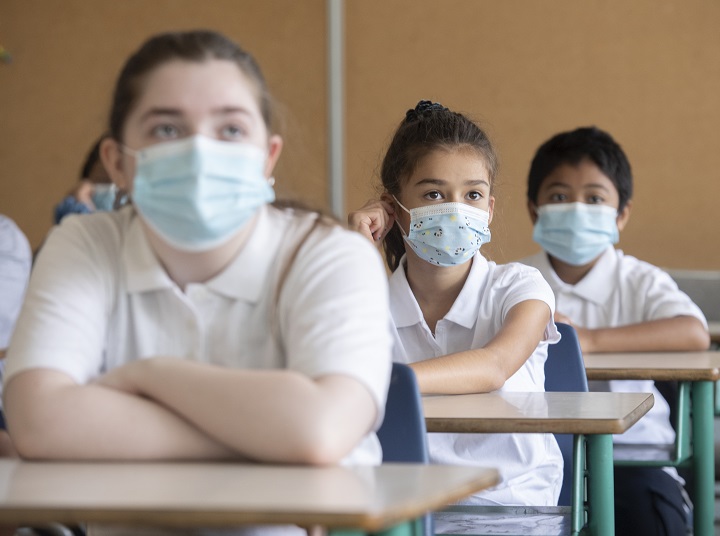The vast majority of Vancouver students and staff who tested positive for COVID-19 last year were infected outside the school environment, a new study suggests.

Researchers at the University of British Columbia analyzed data on student and staff cases identified by public health officials within the Vancouver School District. Between April and June of 2021, the team also tested the blood of nearly 1,700 teachers in the district and conducted in-depth contract-tracing for students and staff.
Sixty-nine cases of the virus were identified between kindergarten and Grade 12, and of the 229 close contacts identified for those individuals, only three had tested positive. Two of those were detected through asymptomatic testing.
Ninety per cent of the transmission took place outside of schools, Dr. Pascal Lavoie, BC Children’s Hospital pediatrician and UBC professor, said.
“The data … is all very consistent,” he told Global News.
“Kids don’t stop having social interactions outside of school. That’s the piece that people are not necessarily keeping in mind when they (say) that there are so many cases in schools.”
Of the 69 COVID-19 cases detected by the team, 94 per cent were in students and 6 per cent were among staff.
The research team compared its findings with data from Canadian Blood Services on the positivity rate of antibody testing among Vancouver residents by age, sex and postal code. The positivity rate for teachers they had tested was no different than the general population, said Lavoie.
“It was more linked to their area of residency, where the teachers lived, rather than where they worked.”
The study, released by the COVID-19 Immunity Task Force, has not yet been peer-reviewed.
Antibody blood testing was also conducted in the Surrey and Delta school districts, but that data has not yet been released. Researchers did not conduct contact-tracing in those schools.
As a result of the Vancouver findings, however, Lavoie and Dr. Louise Mâsse, a UBC professor, behaviourial scientist and investigator at BC Children’s Hospital, suggested routine asymptomatic testing become part of the prevention plan in schools.
“There basically is a consensus among the pediatric community in Canada about the urgency and importance of doing everything society can to keep schools open, in light of all these observations,” said Lavoie. “Kids need to see other kids.”

The research was conducted as the Delta variant of concern began its rapid spread around the world. The team plans to continue the study to see if the patterns are the same for the Omicron variant, with testing likely taking place in the spring.
“We’re going back to schools and collecting blood from teachers again from those three school districts,” said Lavoie.
“The longer we wait, the more likely we are to catch all the infection. We’re not in a rush.”
The COVID-19 Immunity Task Force was launched by the federal government in 2020 to catalyze and fund research about the pandemic that can be used by decision-makers across the country.





Comments